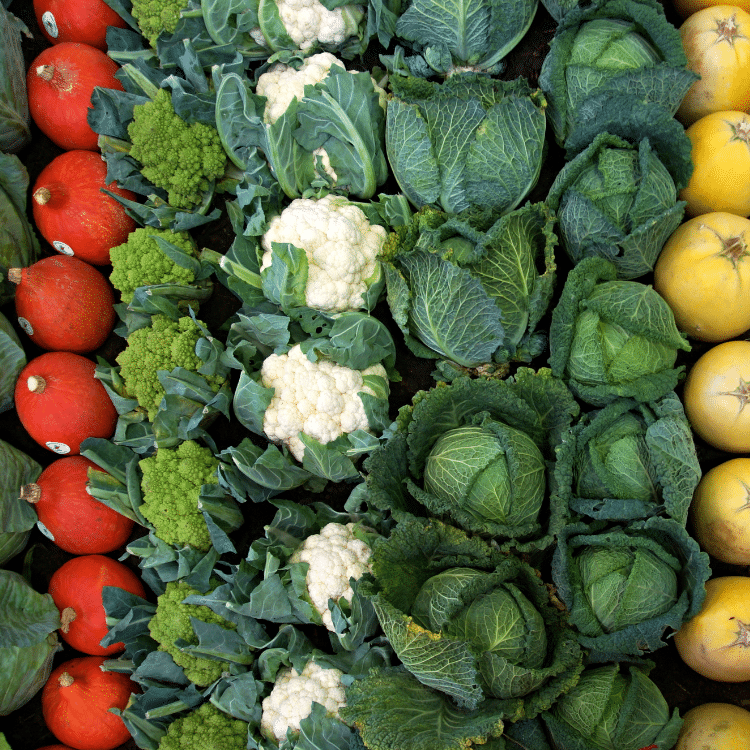CNS lately launched Whole Communities, a web based platform the place you possibly can join with others; be impressed by the work of entire meals, plant-based (WFPB) advocates from world wide; get help by collaborating in energetic dialogue teams; and be part of free workshops each month—all with the goal of constructing resilient communities of well being by means of WFPB vitamin.
In the newest of our month-to-month workshops, “Debunking the Cult of Animal Protein,” Dr. T. Colin Campbell offered on the subject of animal protein. In the event you haven’t seen the workshop but and wish to test it out, it’s straightforward to entry. All you must do is register for a free account on Entire Communities.
He explored the historic foundations of our society’s obsession with protein, and particularly our obsession with the protein of animal meals, describing protein because the, “predominant driver of meals manufacturing and meals alternative” ever because it was found within the 1830s.
This obsession is so entrenched in our considering that most individuals aren’t even conscious of it. It’s why folks on a WFPB food regimen are so ceaselessly requested the query: the place do you get your protein? Dr. Campbell reveals the issues and penalties of this considering, which has had a harmful impact on our well being for much too lengthy.
His personal private {and professional} historical past have additionally been closely influenced by our fascination with animal protein—rising up on a dairy farm, getting into into the sphere of vitamin with excessive hopes for the significance of animal protein, and finally discovering and replicating analysis that undermined that complete worldview—and these experiences have clearly knowledgeable his perspective. He talks in regards to the notion of “top quality” vs “low high quality” protein, the place it got here from and what it means, and in addition the connection that animal protein has with the phases of most cancers improvement—a topic he spent a long time researching.
Sadly, the cult of animal protein persists right this moment. It continues to form selections in public well being, vitamin analysis, and meals coverage extra broadly. The excellent news is, there’s a ready-made various within the type of the WFPB food regimen, which may undo most of the epidemics of illness which have been promoted by our consumption of animal meals. To be taught extra about Dr. Campbell’s perspective on this various, and the hopeful analysis that hyperlinks higher vitamin to the prevention and reversal of our commonest killers, benefit from the recording of the workshop by signing up on Entire Communities.
Do you will have ideas on this topic? Questions or considerations? Options you’re desirous to implement on the dimensions of your individual household or group? We’d like to have you ever be part of our Entire Communities hear from you!

The place do you get your protein?
In the event you’re somebody who’s chosen to not eat meat, then you definitely’ve seemingly been requested extra instances than you care to recollect, “however the place do you get your protein?”.
Many people might have consumed animal meals for years, considering that we wanted them to get sufficient protein.
As a part of the Entire Communities Membership Program, Dr. T. Colin Campbell offered a workshop on the obsession that exists round animal protein. He explains why as a substitute of discussing, “How are we going to fulfill the necessity for the manufacturing of extra animal meals?”, the emphasis needs to be on how we will eat in another way to learn our planet and our well being.
Why are we obsessive about protein?
Dr. Campbell argues that our fascination with high-quality animal protein is the “predominant driver of meals manufacturing and meals alternative and its penalties”.
Protein was first found within the 1830s, with Gerhard Mulder, a Dutch chemist who noticed a canine consuming meat and concluded that if it didn’t it might die. He appeared for one thing he might isolate within the meat and found a compound which he named “proteios”, a Greek phrase which means “of prime significance”.
His influential colleague, Justus von Liebig, additionally referred to protein as “the stuff of life itself”.
The place has the notion of high-quality protein come from?
It wasn’t till the 1900s that it was found crops comprise protein. Up till this level it was solely considered present in meat.
There’s a notion that meat supplies top quality protein. However what does this imply? Dr. Campbell explains:
Prime quality = extra dietary protein retained in physique (additionally known as organic worth).
It’s been extensively accepted that top high quality protein comes from animals and decrease high quality from crops. The origins of this return to the Twenties the place the organic worth of protein was analyzed in relation to animal agriculture. Why is that this essential? Extra protein retained means higher physique weight acquire and subsequently extra revenue for, on this case, livestock-based agriculture.
Retaining protein results in many deleterious well being problems – growing development hormone, free radicals which pace up growing old, most cancers mutations, LDL ldl cholesterol and elevating blood sugar. On the similar time reducing our pure killer cells and DNA restore which ends up in a rise in most cancers, coronary heart illness and diabetes.

Animal protein consumption and most cancers
Dr. Campbell advocates a wholefood plant-based food regimen (WFPB), however this wasn’t all the time the case. His doctorate diploma again within the Sixties targeted on encouraging the consumption of animal protein. When taking a look at malnourishment in youngsters the belief was that malnourishment was attributable to an absence of protein. It was solely when he began his analysis that he found very younger youngsters being handled for liver most cancers. The youngsters consuming the very best ranges of protein had been more than likely to get liver most cancers.
Over a few years Dr. Campbell checked out whether or not animal protein might trigger most cancers.
It’s essential to notice that though Dr. Campbell was initially skeptical that animal protein might trigger most cancers, he spent a few years learning the correlation between the 2. His work, which was first revealed within the Nineteen Eighties, confirmed {that a} food regimen of 5% animal protein didn’t trigger gene mutation and subsequently a probable improve in most cancers, however consuming 20% animal protein did. Most cancers improvement is also managed by altering the proportion consumption of protein, which led the researchers to conclude that “vitamin quite than genes, controls most cancers improvement”.
Dr. Campbell continued a few years of analysis wanting on the mechanism to elucidate the impact of animal protein and whether or not drug intervention was the reply. He concluded there was nobody mechanism that precipitated most cancers and subsequently it wasn’t potential for a drug to counter what occurs on a excessive animal protein food regimen.
Many research from different researchers concluded that every one forms of animal protein, together with low-fat milk and saturated fats trigger a rise in most cancers and coronary coronary heart illness.
Dr. Campbell describes intimately on this workshop how animal protein will increase cancer-promotion mechanisms, while reducing the methods our physique tries to guard us through the three phases of most cancers – initiation, promotion and development.
The implications for meals coverage improvement
The minimal quantity of protein we want is round 5% of complete energy. To make sure everybody will get sufficient protein the advisable each day quantity is 9%. Within the US and different western nations, the consumption vary may be as much as 24% and roughly 75-80% of that is made up of animal protein. With this consumption we will count on to see a rise in continual illness danger.
Opposite to standard perception a WFPB food regimen supplies sufficient protein and there’s no purpose to try for thus known as high-quality protein from animal sources. Shockingly, in 2002 an higher protected degree of 35% was set. It was coated within the press and was even adopted at school meal applications. It gained reputation by what Dr. Campbell refers to as “mob energy” and led folks to assume they might eat as a lot animal protein as potential.
Unsurprisingly, however essential to notice – the funding help for this higher degree got here from numerous organizations with a vested curiosity, particularly pharmaceutical firms and establishments representing the meals business.

The advantages of a wholefood plant-based food regimen
In addition to serving to to guard us from cancers, coronary heart illness and diabetes Dr. Campbell talks about many peer-reviewed research protecting a broad vary of circumstances the place a WFPB food regimen can both stop, halt the development or remedy. These embody debilitating circumstances comparable to rheumatoid arthritis, a number of sclerosis and Alzheimer’s illness. The helpful dietary results of consuming WFPB are broad, and so they will also be fast. Inside 24 hours folks can begin to really feel the advantages. Most significantly, is that there aren’t any uncomfortable side effects.
Can a WFPB food regimen assist cut back the severity of coronavirus (COVID-19)?
Dr. Campbell’s work for the China Examine checked out one other virus – hepatitis B. It concluded that consuming even small quantities of animal meals decreases our pure killer cells and will increase the prevalence of liver most cancers and in the end, demise.
Conversely, folks consuming plant meals produce antibodies, so the virus stays inactive and, within the majority of instances, doesn’t go on to develop liver most cancers.
Dr. Campbell means that the identical could possibly be the case with COVID-19. Folks most inclined to extreme COVID are over 60 and have a degenerative illness, comparable to most cancers or coronary heart illness. Dr. Campbell factors out {that a} WFPB food regimen reduces the danger of those ailments and the danger of extreme COVID by constructing the immune system.
So, what can we do? The message is easy – eat a food regimen primarily based on crops of their entire type as a lot as potential.
Discover out extra and watch the complete video from Dr. Campbell – Debunking the Cult of Animal Protein – by becoming a member of Entire Communities. That is the place the place you possibly can join with others, be impressed, get help, be part of workshops each month – all with the goal of constructing resilient communities of well being by means of whole-food, plant-based vitamin.
Copyright 2023 Heart for Vitamin Research. All rights reserved.













